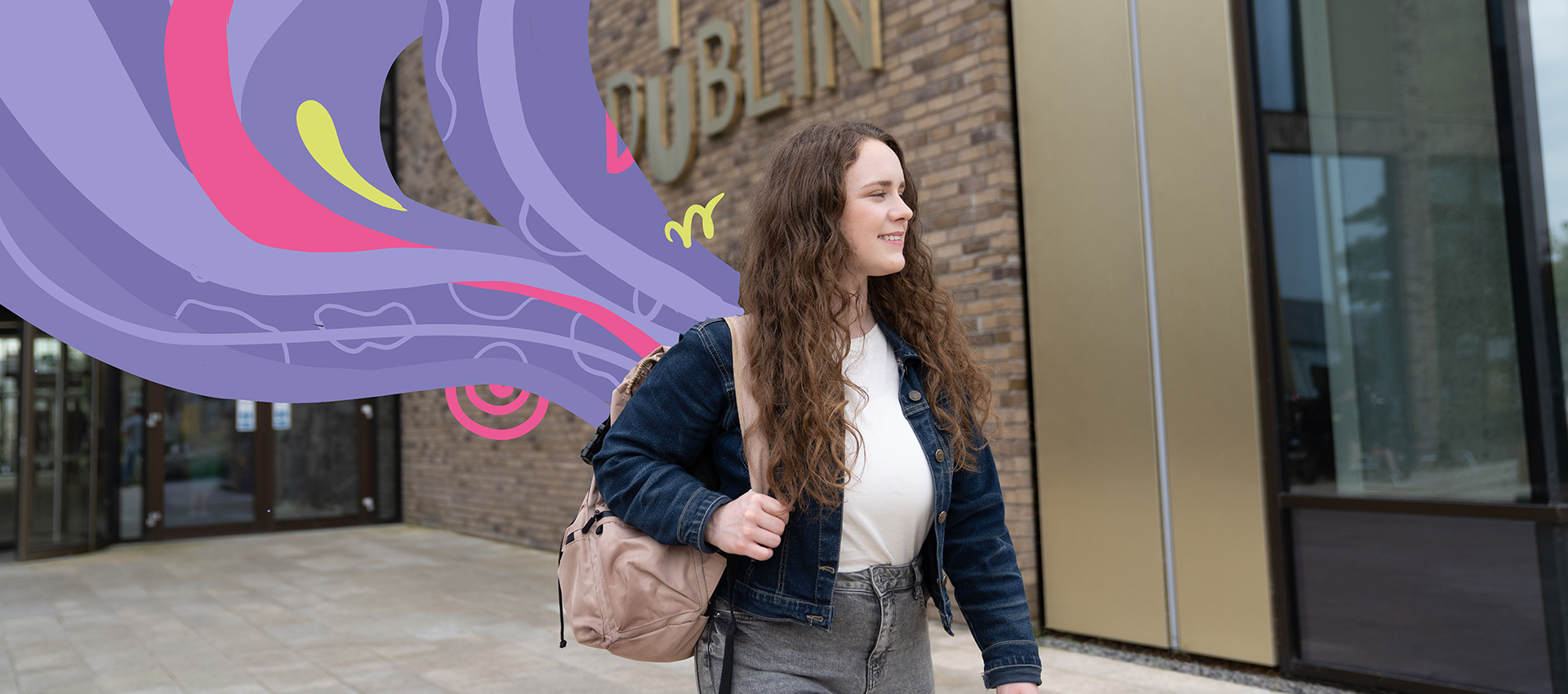The Major in Computer Science has been developed specifically for the Arts student and draws from a suite of well-established modules and principles which underpin the successful BSc (Hons) Computer Science/ BSc (Hons) Computer Science (infrastructure).
As a student you will study 5 mandatory modules and select from a further 13 electives/options chosen from a wide range of modules. Your core modules in programming, databases and algorithms and problem-solving are the foundation of this Major. You are free to choose any 13 electives but may decide to choose a set of modules that hone your major for a particular career pathway, e.g. Data, AI, Enterprise systems and Software Engineering.
You will also undertake a capstone project where you will be given the opportunity to draw on your knowledge and skills sets gained throughout your chosen degree path. Your capstone project may also be tailored to align with a specific career destination or study specialisation.
ECTS credits: 120
- Total Number of Mandatory ECTS credits to be taken: 35
- Total Number of Optional ECTS credits to be taken: 65
- Total Number of Credits for the Capstone Project: 20
What is the latest (semester) a student can select the Major
Spring Recess 2nd Year
- Programming
- Databases 1
- Algorithm Design and Problem Solving
- OO Programming
- Databases 2
Up to 3 modules from:
- Web Development 1
- Program Design
- Software Engineering 1
- Operating Systems 1
- Mathematics 1
Up to 4 modules from:
- Web development 2
- Software engineering 2
- Operating systems 2
- Human Computer Interface
- Algorithms and data structures
Any 3 - 4 modules from:
- Cloud Computing
- Client Server Programming
- Mobile S/W Dev
- Introduction to AI
- Software Engineering 3
- Advanced Databases
- Distributed Systems
- Machine Learning for Predictive Analysis
- Games Engines 1
- Advanced Security 1
- Fundamentals of IoT
- Rich Web Development
- Forensics
Choosing a major in Computer Science within an Arts programme offers a powerful and versatile combination of technical expertise and critical thinking. In today’s interconnected world, digital literacy is essential across all domains—from media and education to health, government, and the creative industries. Studying computer science alongside subjects such as philosophy, economics, Media, or Cultural studies allows students to develop a broader understanding of the societal, ethical, and cultural implications of technology, positioning them not just as coders, but as thoughtful, adaptable innovators.
This major equips students with core skills such as programming, data handling, and algorithmic thinking -skills in high demand across a range of industries. At the same time, the liberal arts environment fosters communication, analysis, and creativity, enhancing students’ ability to collaborate, contextualise, and problem-solve in multidisciplinary teams.
Whether you're passionate about using technology for social good, interested in creating digital art and interactive experiences, or aiming to shape future digital policy, a computer science major in this context provides the foundation to do so effectively. The inclusion of a capstone project allows students to integrate their learning in meaningful, real-world applications. Moreover, the flexibility to specialise in areas such as AI, cybersecurity, cloud computing, or game development ensures that students can tailor their path according to interest and emerging trends.
Ultimately, this major empowers students not only to understand how technology works, but to shape how it is used in the service of society, culture, and the common good.
Graduate of this Major could be instantly be employable in the wider technology and ICT sector.
- Software Developer / Engineer
Graduates can enter roles in software or application development across diverse sectors including education, media, business, or healthcare. They may pursue further study such as a Postgraduate Diploma or MSc in Software Engineering, Computer Science, or Applied Computing. - Data Analyst / Data Scientist
With core training in databases, algorithms, and machine learning, students are well placed to work in data analysis, business intelligence, or predictive analytics. Relevant further study might include an MSc in Data Analytics, Artificial Intelligence, or Statistics. - Cybersecurity Analyst
With modules in advanced security and forensics, graduates may pursue roles in cybersecurity, risk analysis, or compliance across public and private sectors. Further study might include a Higher Diploma or MSc in Cybersecurity, Digital Forensics, or Information Assurance. - Web and Mobile Application Developer
Students with experience in web development, rich interfaces, and mobile app creation can work in frontend/backend roles in digital media, e-commerce, or startups. Follow-on qualifications may include MSc in Human Computer Interaction, Mobile Computing, or UX Design. - Technology Project Manager or Tech Consultant
With strong problem-solving and team project experience (e.g. through the capstone), students may work in project coordination or tech consultancy roles, especially where tech meets liberal arts domains. Further study might include a Postgraduate Diploma in Technology Management, Innovation, or Digital Strategy.

